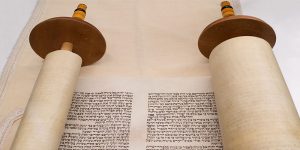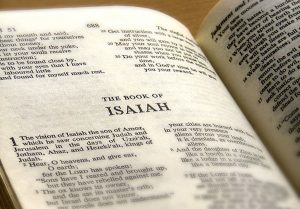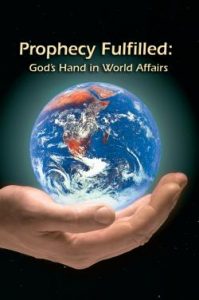
Shownotes
Wisdom-Trek / Creating a Legacy
Welcome to Day 1341 of our Wisdom-Trek, and thank you for joining me.
I am Guthrie Chamberlain, Your Guide to Wisdom
Mastering the Bible – Most Prophecy is Already Fulfilled – Worldview Wednesday
Wisdom - the final frontier to true knowledge. Welcome to Wisdom-Trek! Where our mission is to create a legacy of wisdom, to seek out discernment and insights, to boldly grow where few have chosen to grow before. Hello, my friend, I am Guthrie Chamberlain, your captain on our journey to increase Wisdom and Create a Living Legacy. Thank you for joining us today as we explore wisdom on our 2nd millennium of podcasts. Today is Day 1341 of our Trek, and it is Worldview Wednesday. Creating a Biblical Worldview is essential to have a proper perspective on today’s current events. To establish a Biblical Worldview, you must have a proper understanding of God and His Word. Our focus for the next several months on Worldview Wednesday is Mastering the Bible, through a series of brief insights. These insights are extracted from a book of the same title from one of today’s most prominent Hebrew Scholars, Dr. Micheal S. Heiser. This book is a collection of insights designed to help you understand the Bible better. When we let the Bible be what it is, we can understand it as the original readers did, and as its writers intended. Each week we will explore two insights.
Mastering The Bible – Most Prophecy is Already Fulfilled
Insight Forty-Five: Old Testament Prophets Preached at Different Times and Places
Since the books of the prophets are grouped together in English Bibles, it appears to most Bible readers that the prophets lived and ministered at roughly the same time. That isn’t the case.
The biblical prophets are divisible into two categories. First, there are the prophets who didn’t write any books we have in the Old Testament. Some famous prophets like Elijah and Elisha are in that category. They didn’t write anything as far as we know. Then there are the ‘‘writing prophets,” those who left us with material in the Old Testament. The writing prophets are typically categorized into the “major prophets” (the name given to lengthy books like Isaiah, Jeremiah, and Ezekiel) and “minor prophets” (short books like Micah, Habakkuk, and Obadiah).
Regardless of the organizational groupings into which any of the prophets might fall, they lived over a span of hundreds of years. They also ministered in various parts of the promised land.
Most prophetic books contain enough information to situate a prophet chronologically. For example, prophets like Elijah and Elisha lived in the tenth and ninth centuries BC (ca. 950—850 BC). We know that because their ministries overlapped with King Ahab. Isaiah lived in the second half of the eighth century BC since his life intersected with the kings Uzziah, Jotham, Ahaz, and Hezekiah. Prophets like Jeremiah, who mention the end of the line of the kings of Judah, can be safely situated just before the fall of Judah to Nebuchadnezzar of Babylon (ca. 586 BC).
If a prophet lived prior to 722 BC, the date of the fall of the ten-tribe northern kingdom of Israel, they may have ministered to either Israel or Judah. Solving this question depends in part on whether kings of the north or south are mentioned in their written material. It can also be resolved by the mention of a hostile foreign empire, like Assyria (northern kingdom enemy) or Babylon (southern kingdom enemy), or by means of a focus on Israel/Samaria or Judah. For example, Ezekiel’s prophecy opens at the river Chebar in Babylon, allowing us to know he was among the captives taken from Judah. Hosea’s book begins with the list of the same kings who reigned during Isaiah’s lifetime (Uzziah, Jotham, Ahaz, and Hezekiah). Hosea ministered in to the apostate northern kingdom, since he mentions the threat of Assyria (Hosea 8:8—9) and focuses on the northern kingdom of Israel. Isaiah, on the other hand, focuses on Judah and its environs.
For example, Ezekiel’s prophecy opens at the river Chebar in Babylon, allowing us to know he was among the captives taken from Judah. Hosea’s book begins with the list of the same kings who reigned during Isaiah’s lifetime (Uzziah, Jotham, Ahaz, and Hezekiah). Hosea ministered in to the apostate northern kingdom, since he mentions the threat of Assyria (Hosea 8:8—9) and focuses on the northern kingdom of Israel. Isaiah, on the other hand, focuses on Judah and its environs.
Knowing the time and place of a prophet is vital for interpreting in context. But even when certainty isn’t possible, the message of loyalty to God is always evident.
Insight Forty-Six: Most of the Material in the Prophets Has Already Been Fulfiled
 One of the things that Dr. Heiser specifies that he noticed with great regularity during his teaching career is the overwhelming propensity of Bible readers to assume that much of what is written in the Old Testament prophets is speaking to a time yet future to us. Over and over again, whether in his class discussion or their written work, students would take phrases about the “return” of Israel or the restoration of temple worship as speaking about end times in relation to their own lives. The opposite is, in fact, the case. A couple of passages illustrate the problem. Let’s first look at Isaiah 10:20-21
One of the things that Dr. Heiser specifies that he noticed with great regularity during his teaching career is the overwhelming propensity of Bible readers to assume that much of what is written in the Old Testament prophets is speaking to a time yet future to us. Over and over again, whether in his class discussion or their written work, students would take phrases about the “return” of Israel or the restoration of temple worship as speaking about end times in relation to their own lives. The opposite is, in fact, the case. A couple of passages illustrate the problem. Let’s first look at Isaiah 10:20-21
In that day the remnant left in Israel,
the survivors in the house of Jacob,
will no longer depend on allies
who seek to destroy them.
But they will faithfully trust the Lord,
the Holy One of Israel.
A remnant will return;
yes, the remnant of Jacob will return to the Mighty God.
Next, let’s look at Isaiah 37:31-32
And you who are left in Judah,
who have escaped the ravages of the siege,
will put roots down in your own soil
and grow up and flourish.
For a remnant of my people will spread out from Jerusalem,
a group of survivors from Mount Zion.
The passionate commitment of the Lord of Heaven’s Armies
will make this happen!
Many students would presume the return, and the remnant spoken of here, refers to a future regathering of Israel before (or in conjunction with) the return of Jesus. But that reading rips the passages from their context. Isaiah saw the northern kingdom go into captivity and prophesied that the southern kingdom would suffer the same fate. The first passage could, therefore, speak of the hope of the return of the northern tribes (something Ezekiel later explicitly prophesied; see Ezekiel. 37:11—28). The remnant language most clearly refers to the people who would be taken to Babylon much later, since Jeremiah and Ezekiel use the same term of the people captured by Babylon. Both prophets feared this remnant would not be allowed to return to the land when the captivity was over if they did not repent (Jeremiah. 42:1-19; 44:1-14; Ezekiel 11:13).
We know from Old Testament history that the remnant of Israel did return from captivity. Consequently, it makes much more sense—unless something in the passage makes it impossible—to interpret “return and remnant” language in the prophets to be speaking of the exile and return, events that have already come to pass.
There are similar problems with the “Day of the Lord.” That phrase should not be assumed to be speaking of end times. It sometimes does, but context must dictate that conclusion. The same is true of language in the prophets about an Israelite return. In every case, the context must dictate the meaning of the text, not modern preaching or our interest in prophecy. The context must drive the conclusion that a prophetic statement refers to a time far removed from biblical days. Otherwise, we force biblical passages to say things that simply are not accurate.
We must be cautious when we try to force prophecy into our preconceived notion or mindset of end times. Context is the primary determining factor.
That will conclude this week’s lesson on another two insights from Dr. Heiser’s book “Mastering The Bible.” Next Worldview Wednesday, we will continue with two additional insights. I believe you will find each Worldview Wednesday an interesting topic to consider as we build our Biblical Worldview.
Tomorrow we will continue with our 3-minute Humor nugget that will provide you with a bit of cheer, which will help you to lighten up and live a rich and satisfying life. So encourage your friends and family to join us and then come along with us tomorrow for another day of ‘Wisdom-Trek, Creating a Legacy.’ If you would like to listen to any of our past 1340 treks or read the Wisdom Journal, they are available at Wisdom-Trek.com. I encourage you to subscribe to Wisdom-Trek on your favorite podcast player so that each day’s trek will be downloaded automatically.
If you would like to listen to any of our past 1340 treks or read the Wisdom Journal, they are available at Wisdom-Trek.com. I encourage you to subscribe to Wisdom-Trek on your favorite podcast player so that each day’s trek will be downloaded automatically.
Thank you so much for allowing me to be your guide, mentor, and, most of all, your friend as I serve you in through this Wisdom-Trek podcast and journal.
As we take this Trek together, let us always:
- Live Abundantly (Fully)
- Love Unconditionally
- Listen Intentionally
- Learn Continuously
- Lend to others Generously
- Lead with Integrity
- Leave a Living Legacy Each Day
I am Guthrie Chamberlain….reminding you to ’Keep Moving Forward,’ ‘Enjoy your Journey,’ and ‘Create a Great Day…Everyday’! See you Tomorrow!